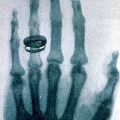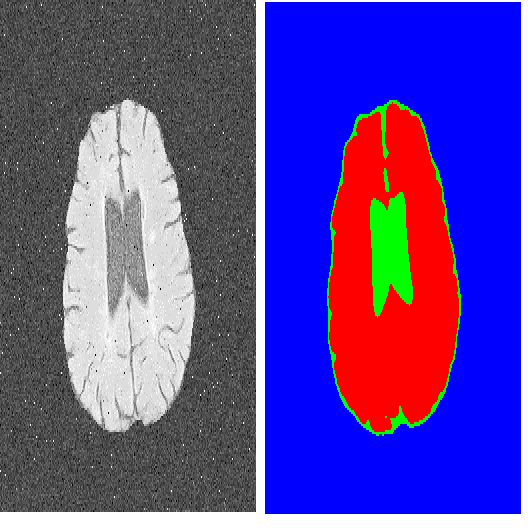Federated learning (FL) allows multiple medical institutions to collaboratively learn a global model without centralizing client data. It is difficult, if possible at all, for such a global model to commonly achieve optimal performance for each individual client, due to the heterogeneity of medical images from various scanners and patient demographics. This problem becomes even more significant when deploying the global model to unseen clients outside the FL with unseen distributions not presented during federated training. To optimize the prediction accuracy of each individual client for medical imaging tasks, we propose a novel unified framework for both \textit{Inside and Outside model Personalization in FL} (IOP-FL). Our inside personalization uses a lightweight gradient-based approach that exploits the local adapted model for each client, by accumulating both the global gradients for common knowledge and the local gradients for client-specific optimization. Moreover, and importantly, the obtained local personalized models and the global model can form a diverse and informative routing space to personalize an adapted model for outside FL clients. Hence, we design a new test-time routing scheme using the consistency loss with a shape constraint to dynamically incorporate the models, given the distribution information conveyed by the test data. Our extensive experimental results on two medical image segmentation tasks present significant improvements over SOTA methods on both inside and outside personalization, demonstrating the potential of our IOP-FL scheme for clinical practice.
翻译:联邦学习 (FL) 允许多个医疗机构在不集中客户数据的情况下协作学习全局模型。由于来自不同扫描仪和患者人口统计信息的医学图像的异质性,这种全局模型通常难以达到每个个别客户的最佳性能。当将全局模型部署到 FL 之外的未见客户时,这个问题变得更加重要,因为这些客户具有未在联邦训练期间呈现的未见分布。为了优化每个个别客户的医学成像任务的预测准确性,我们提出了一个新的统一框架,用于联邦学习中的内部和外部模型个性化 (IOP-FL)。我们的内部个性化方法使用了一种轻量级的基于梯度的方法,利用每个客户的本地适应模型,通过积累常见知识的全局梯度和客户特定优化的局部梯度。此外,由于测试数据所传达的分布信息,所获得的本地个性化模型和全局模型可以构成多样和信息丰富的路由空间,以个性化适应外部 FL 客户的模型。因此,我们设计了一个新的测试时路由方案,使用形状约束的一致性损失,动态地整合模型。我们在两个医学图像分割任务上进行了大量实验,结果表明,在内部和外部个性化方面,我们的 IOP-FL 方案相对于 SOTA 方法有显著提高,证明了我们的 IOP-FL 方案在临床实践中的潜力。


